Biofuels – Fibre-technology – Plastic 18-03-2023 - Arhive
Biofuels – Fibre-technology – Plastic
-Coca-Cola Introduces Plant-Based Bottles Made from Sugarcane and Paper
Coca-Cola has as of late declared the send-off of its most recent eco-accommodating drive, which includes the utilization of plant-based bottles produced using a mix of sugarcane and paper. This move is part of the beverage giant’s efforts to reduce its plastic waste and promote sustainable packaging.
As indicated by Coca-Cola, these plant-based bottles are intended to be 100 per cent recyclable and are supposed to diminish the organization’s carbon impression fundamentally.
This is because sugarcane, the primary component of the new bottles, is a renewable resource that absorbs carbon dioxide from the atmosphere while it grows. Moreover, the paper used in the production of the bottles comes from responsibly managed forests.
This isn’t the initial time Coca-Cola has wandered into eco-accommodating bundling. In 2009, the company introduced its “PlantBottle” technology, which was made from a combination of sugarcane and recycled plastic. However, the new plant-based bottles represent a significant improvement over the previous technology, as they are entirely free from fossil fuels. Biofuels – Fibre-technology – Plastic
This most recent drive is essential for Coca-Cola’s bigger supportability technique, which means making the organization’s activities all the more harmless to the ecosystem.
The company has set ambitious targets to reduce its carbon emissions, promote water stewardship, and improve its packaging sustainability. Coca-Cola has also pledged to collect and recycle one bottle or can for every one it sells by 2030.
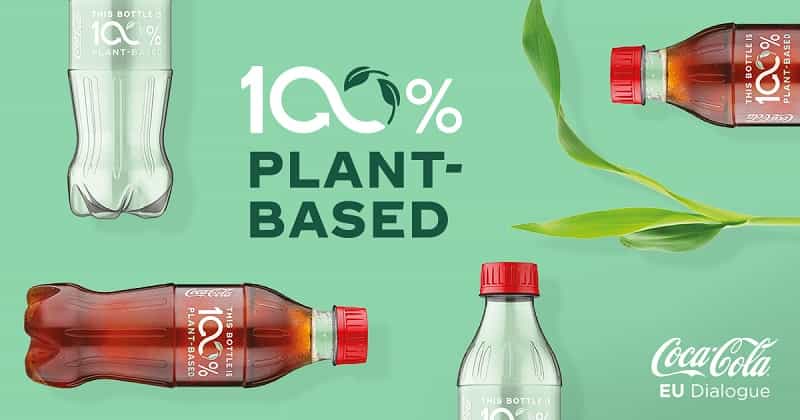
-Program announced for World of Wipes
INDA has announced the program for the World of Wipes (WOW) International Conference, July 17-20, Atlanta, Georgia. Key topics include: Plastics policy: closing the ‘intention-action’ gap, sustainable manufacturing practices, what consumers think about sustainability and how they are driving cultural change, supply chain transparency, wipes advancements, flushability developments, and a special CEO panel sharing their organizations’ approach to inflation, supply chain challenges, and capacity/demand balance.
Among the leading organizations presenting at this year’s event are: Berry Global, Birla Cellulose, Bringabouts, Bureau Veritas, Diamond Wipes, Freudenberg Performance Materials, Glatfelter, Goodwipes, Kimberly-Clark Corporation, National Cotton Council, Mango Consulting, Plastics Industry Association, Rockline Industries, Sharon Laboratories, and Trützschler Nonwovens. Program and speaker details are available on the WOW website. Biofuels – Fibre-technology – Plastic
Two new features at WOW this year are Lightning Talks and Lunch Around. Lightning Talks are an opportunity for tabletop exhibitors to highlight their innovations in “supersized elevator speeches” to WOW participants. Lightning Talks will take place before the tabletop exhibits open Tuesday and Wednesday evenings. The Lunch Around opportunity connects participants and thought leaders from the wipes industry at select downtown Atlanta restaurants on Tuesday and Wednesday. Space is limited and is first-come, first-served.
WOW kicks off with the Wipes Academy, a comprehensive course including elements of market research, materials, chemistry, converting, and regulatory filing. This course has been redeveloped to include all aspects of wipes development from concept to commercialization. Biofuels – Fibre-technology – Plastic
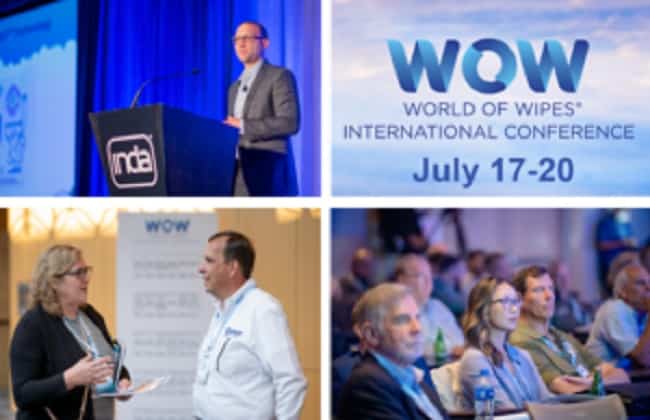
-SK Chemicals signs a $100 million asset purchase agreement with China’s Shuye
The company is now a force to be reckoned with in the global rPET market
South Korean chemical giant SK chemicals has concluded an asset purchase agreement worth $ 100 million with Shantou, China headquartered Shuye Environmental Technologies, a company with PET depolymerisation technology facilities and expertise.
The agreement is evidence of the ongoing relationship between the two companies: in 2021, SK chemicals invested an amount of 23 billion won for a 10% stake in Shuye, and secured an off-take agreement for 20,000 tons of chemically recycled raw material production capacity. At the time, the decision represented a proactive response to the rapidly increasing demand for eco-friendly packaging market, the company explained. In 2022, the companies signed a MOU for the formation of a JV that would see the construction of a 100,000-ton chemical recycling plant for BHET (r-BHET) and a 200,000-ton (CR) copolyester and PET depolymerisation plant at Shantoe, next to Shuye’s first depolymerisation plant. Biofuels – Fibre-technology – Plastic
BHET, or bis(2-Hydroxyethyl) terephthalate, is an intermediate in the production of polyethylene terephthalate.
Under the present agreement, these assets have now been transferred to SK chemicals. As a result, SK chemicals owns the world’s first commercially available polyester chemically recycled raw materials and production facility, which can be sold separately. The acquisition has enabled SK chemical to pull well ahead of the other domestic companies in this space, making it a force to be reckoned with.
The company said that, next to expanding its copolyester business, it would therefore also be looking at the newly acquired, high-growth potentials as development drivers. It added that once it had validated its production technology, it planned to build infrastructure in China and other countries – in Europe, North America, and beyond – to meet the rapidly increasing demand for recycled plastic waste around the world.
According to a report from Wood Mackenzie, the global recycled PET market in 2022 amounted to approximately 9.7 million tons, with the majority of the market currently consisting of mechanically recycled PET (MR-PET). Biofuels – Fibre-technology – Plastic
The development of the chemically recycled PET market – hampered in the past by raw material shortages – is expected to show rapid growth through 2030 and to reach as much as $7.6 billion in response to factors such as curbs on carbon emissions, regulations on plastic use and recycling, and changing consumer preferences.

-‘Biofuels’ from discarded plastics pose health risks
In an effort to combat the climate crisis, the Environmental Protection Agency (EPA) in the United States had unveiled a biofuels program under the Toxic Substances Control Act that makes it easier to approve petroleum alternatives.
Apparently, the meaning of “biofuel” is as flexible as a plastic bag because the EPA has just permitted Chevron to use discarded plastics as a fuel source, alleging that reusing this waste is eco-friendly. The reality is far from that.
The U.N. Environment Programme estimates the plastics industry will account for 20% of global oil consumption by 2050. Although most plastic is made from natural gas, petroleum — also called crude oil — is still an extremely common raw material for producing it. Biofuels – Fibre-technology – Plastic
Burning plastic in any form releases harmful emissions into the atmosphere. Many studies suggest it is even worse for the environment than burning fossil fuels. The new plastic fuel production will contribute to atmospheric warming, directly contradicting the EPA’s decision to use alternative fuels to slow climate change.
A deadly byproduct
More immediately alarming is producing the plastic-based Chevron fuel will create toxic fumes, causing cancer in an estimated 25% of people exposed to them.
That number is so staggering that it feels less like a risk and more like a certainty.
For context, these fumes pose a higher cancer risk than a lifelong smoking habit, even though cigarette smoke contains 7,000 chemicals, many of which are toxic.
An EPA spokesperson admitted 25% was a conservative estimate — the risk is likely higher. Biofuels – Fibre-technology – Plastic
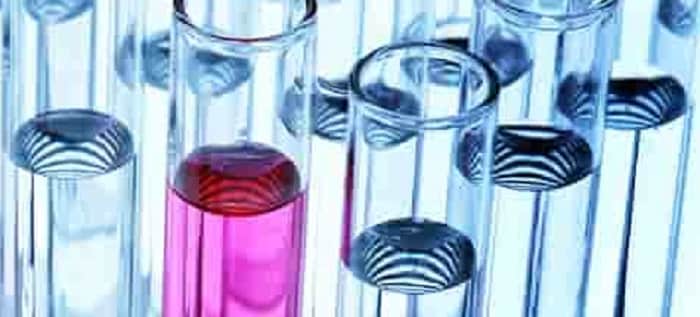
-Saipem and Garbo to collaborate on new technology for plastic recycling
The agreement also provides for the construction on an industrial scale of the first chemical plastic recycling plant in Italy
Saipem and Garbo, an Italian chemical company, have signed an agreement to support the industrialisation, development and international commercialisation on a global scale of a new technology for plastic recycling.
The technology, named ChemPET, is Garbo’s proprietary depolymerisation technology which converts polyethylene terephthalate plastic waste, commonly known as PET, into new, high-quality PET and, therefore, of high value for the chemical and food industries.
The agreement also provides for Saipem and Garbo to collaborate on the construction on an industrial scale of the first chemical plastic recycling plant in Italy, located in Cerano in the province of Novara. Biofuels – Fibre-technology – Plastic
ChemPET is based on a chemical r ecycling technology that, unlike the mechanical process, enables the recycling of types of plastics for which no alternative solutions exist today (such as coloured plastics) and produces higher quality material that, in contrast to the mechanical process, does not lose its properties as it is recycled. ChemPET also allows for a simpler process and by-product management and does not involve the use of flammable or hazardous substances. It therefore represents a solution to the expected growth in demand for recycling of plastics and of PET in particular, also in light of increasingly stringent regulations. Today, PET is mainly used for the production of bottles and packaging.
Fabrizio Botta, Saipem’s Chief Commercial Officer, commented: “This agreement is in line with Saipem’s strategy in the low carbon industrial segments and it enables us to enrich our portfolio of technologies and solutions for the circular economy and the sustainable chemical industry”. Biofuels – Fibre-technology – Plastic
Guido Fragiacomo, CEO of Garbo, stated: “This agreement allows ChemPET to consolidate its technology leadership in crPET through the immediate industrialisation of the two 22.5 kTA units in Cerano and the licensing of the technology on a global scale”.
SAIPEM
Website: www.saipem.com
Switchboard: +39 0244231
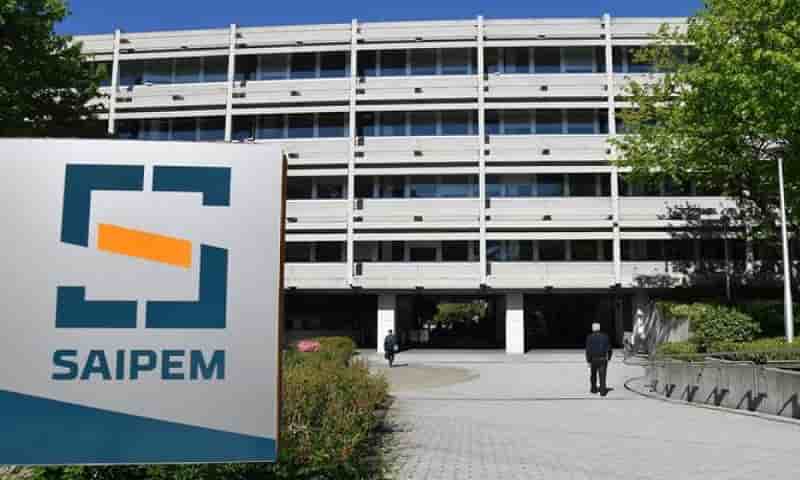
-Nanollose secures US patent for sustainable fibre technology
Australian textile innovator Nanollose, has been awarded a US patent —and the first specifically for its fibre technologies.
The patent application entitled Techniques for Creating a Viscose Dope from Microbial Cellulose received approval from the United States Patent and Trademark Office (USPTO).
According to NC6, the process of pulping microbial cellulose for use in the creation of viscose fibers is covered by the patent.
The US patent is a significant validation of the company’s aim to achieve a broader leading position in sustainable fibre technology, even if the company’s current main focus is on the development of its trade-marked, tree-free Nullarbor lyocell process.
The US patent also broadens NC6’s IP footprint throughout its product line and offers defense against future rivals in the biggest consumer market in the world.
The NC6’s successful application resulted in the grant of its third patent worldwide and first in the US. Biofuels – Fibre-technology – Plastic
It is also the first to directly address the fiber technologies of the corporation, notwithstanding other jurisdictions’ continued review of this family of patents.
In January 2020, NC6 and Grasim Industries signed into long-term development cooperation for the advancement of the Nullarbor lyocell process.
Birla Cellulose’s main company, Grasim Industries, is a division of the multinational Indian conglomerate Aditya Birla Group. Moreover, NC6 and Birla Cellulose filed a combined patent application.
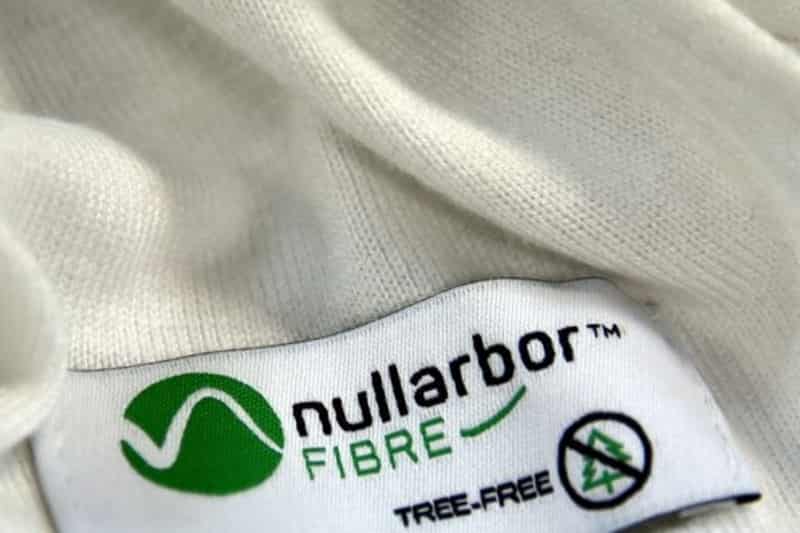
-Incredible India: that’s why it will be the new Eldorado of the European car
The growth of tensions between the United States and China and the apparent support of the Asian giant for Russia is changing the geopolitical scenarios also in the automotive sector, cooling the relations of European manufacturers with China which, among other things, with the landing of its electric cars in Europe is becoming an increasingly formidable opponent. Hence the growing interest in India which, with a population that has exceeded that of China, with half of the inhabitants under the age of 30, appears to be the fastest growing world economy. Meanwhile, according to estimates by Standard & Poor’s, India already in 2022 with 3.8 million cars has become the third global car market, overtaking Japan.Biofuels – Fibre-technology – Plastic
But the growth that most interests European manufacturers is that of electric vehicles, which currently represent only 1% of total car sales, but which the Indian government wants to bring to 30% by 2030. And it will do so by dint of incentives . However, European manufacturers are not looking at India only as a market, but also as a possible strategic base for producing low-cost electric cars for export abroad. Maybe even in Europe, to counter the danger of Chinese invasion. Many are thinking about it, from Stellantis, to Renault and Volkswagen.
And it is in this scenario, and in the wake of the recent relaunch of negotiations between India and the EU for a global free trade agreement, that Acea, the association that brings together European car manufacturers in Brussels, is asking India to to commit to liberalization also on the automotive front, ensuring the abatement of all customs duties for all EU industrial products, both vehicles and car components.
In a note, Acea underlines that ”exports of European vehicles to India have historically represented a negligible value due to prohibitive tariff and non-tariff barriers and oppressive national taxes, kept in force for decades to promote development of the Indian automotive industry and protect the domestic market from international competition”.
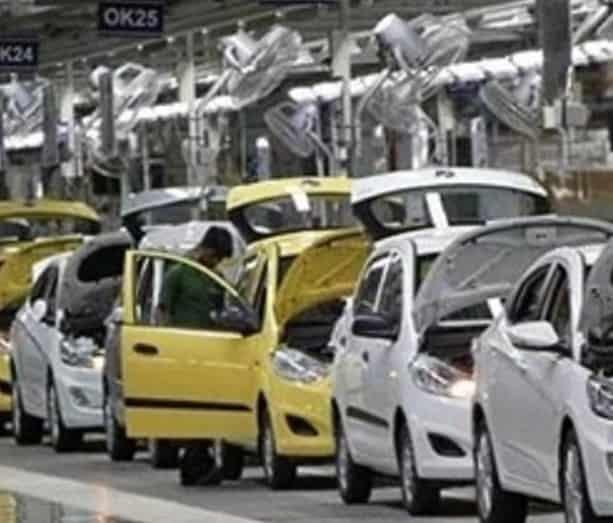
Biofuels – Fibre-technology – Plastic
